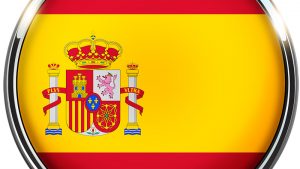
According to the proposal (to be found here, in Spanish): “The Public Administration could also benefit from these technologies. The introduction of Blockchain – in administrative concessions, contracting or internal processes – will encourage greater control, traceability and transparency in the processes. In addition, the use of this technology can also bring extra revenue to the Administration through the promotion of new models of exchange of rights in sectors such as logistics, tourism or infrastructure.”
PP’s blockchain for Spanish Governance
The PP’s proposal, and it is no more than a proposal, urges the (replacing) government to:
- introduce blockchain technology in the Spanish public sector with the aim of improving internal processes and provide traceability, robustness and transparency in decision making
- develop the blockchain technology in models of public and private collaboration in order to favour secondary markets for goods and services (to) lower costs, increase productivity and encourage the creation of specialized employment
- facilitate the training of human resources in blockchain technologies in order to improve their implementation as much as possible.”
These are worthy, if rather vague, objectives. As part of the submission to the Congreso it goes on to say: “Therefore, we must promote the measures that are appropriate for this new concept of service exchange to survive and be introduced with force in the digital world in order to guarantee the security, efficiency and transparency of all transactions in the network.”
The proposal references BBVA with “Coimbase”, Bankinter with “Coinffeine” and Santander with “Utility Settlement Coin”.
Enterprise Times: what does this mean
This proposal shocks, in multiple ways.
The most obvious is its origin, from the disgraced PP. This really does sound as if the kettle is calling the pot black.
The PP now languishes among the dubious fruits of decades of organised corruption (there are multiple court cases still ongoing). The electorate is contemptuous of its probity. It does not help that one of the principle figure in the ‘caso Gürtel’ was a past PP treasurer who ‘administered’ the collection and distribution of illegal funds (he received a 33 year sentence along with with a fine of Euros 44M).
That said, it also shocks because the basic idea could be sound. Most Governments, and not just in Spain, could improve “internal processes and internal processes and provide traceability, robustness and transparency”. If blockchain technology can deliver, that would benefit all, especially the transparency.
The obvious objection is size. All central governments (and most local ones) are large and unwieldy. Yet the PP suggestion (conceptually) also satisfies the last three of the Enterprise Times’ criteria for blockchain success:
- a narrow, well-defined business problem
- existing slow, complex and paper-based processes
- many participants
- multiple organisations, all of which need reliability and transparency.
























